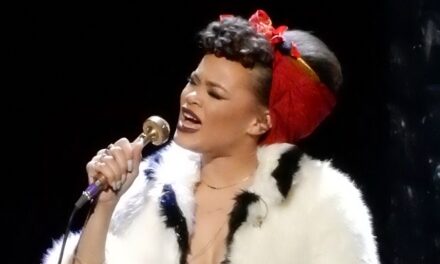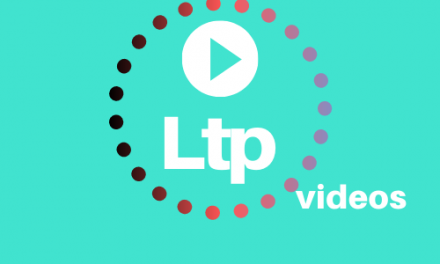I am no stranger to racism or forgiveness. While in the Navy, a racist shipmate tried to kill me by dropping 2,800 pounds of steel and other metals on me, intending to end my life. It left me permanently disabled with a lifetime of pain. In the midst of anger and even hatred, I found the power of forgiveness, and it was more powerful than 2,800 pounds of metal. Forgiveness was more healing than all of the hospitals, physical therapy or medication I could have.
Instead of demanding an apology, I eventually and simply forgave that shipmate and took back control of my life. I found myself unable to perform the job I was trained to do, at 21 years old and permanently disabled. I had a choice: Sit back and complain about how “The White Man done me wrong,” or retrain myself to compete in America.
Forgiveness is meant to alleviate white guilt and black anger. If America truly owes black America a debt from the legacy of slavery, then there are two choices. One is the demand for payment; the second is to forgive the debt.
I do not want anyone to confuse forgiveness with surrender. It is not a docile action; it is a powerful action. I am not saying surrender because others are too powerful. I am saying forgive because they are not powerful enough to keep you down. You cannot have racial reconciliation without racial forgiveness. And you can never have any real racial forgiveness until you have unconditional forgiveness.
I became permanently disabled and faced psychological and mental struggles. I went through radical and angry responses and eventually found a solution that worked for me – and may work for the rest of America. It was racial forgiveness. Not racial “restoration” and not “liberation theology.” It was an old theology called “forgiveness.” As a Christian, what other resolution was there? What other response could I give?
I could have demanded an apology, special treatment, or punishment for the perpetrator. However, if I demanded anything from anyone, I would be dependent upon him. If I was going to be free, I would have to act like a free man. First, I had to totally forgive the hatred and attempted murder. I had to forgive whatever contributing factor I placed upon my country and white people. The real “liberation theology” was not new; it was very old – it was the Gospel of Jesus Christ.
Notice other countries and their conflicts. Some have been seeking revenge back and forth for hundreds of years and cannot develop progress because of their age-old battles. Even within countries you have tribal conflicts so old no one knows how they began. Other countries will fight battles and come to terms and trade with one another. Look at what works. The failure to forgive will stunt the growth of civilizations as well as families.
We need to approach our racial differences as we do war. How did we move on after the Revolutionary War, Civil War or World War II? When the war was over, we forgave. We began to trade and support each other. Without forgiveness, Japan, Germany and England could not be our allies and trading partners today. We fought German tanks and now drive German cars. We destroyed Japanese factories and now import many items from them. Forgiveness has created jobs, prosperity and peace. It will do the same for families and the individual.
What if the Jews and Muslims, Turks and Armenians, and the Bloods and Crips forgave? Where would we be if the Colonist and Britain and the Union and Confederates had not forgiven? Whether it is an invading army or schoolyard bully, it will either aggravate or stimulate you. You get what you feed.
I am not saying I forgive and then allow a cross to be burned in my yard. I am not saying I forgive but still sit in the back of the bus. It would not be complete if I forgave and accepted a second-place position in America. I am still going to compete, and I will not care who does not like it. This is still my country, and I will participate in the American Dream. But no one owes me; no one has power over me; and I know my hatred negatively affects me. Therefore, I have decided not to carry that burden with me through life.
But within our nation there are groups still fighting the Civil War, people who cannot forgive. They have been stunted in their growth. Parts of black and white America are paralyzed with anger and frustration. The rest of America is heading for success; the others are still debating the terms of an apology.
What would happen if angry black protesters forgave white people? Real or imaginary wrongs are just as powerful. The NFL did not want black players. We forgave and now dominate the NFL. Professional basketball, baseball, boxing and other sports were discriminating, but we forgave the wrongs and started competing. What if we acknowledged the wrongs and forgave that old slave master? What if we forgave his children and grandchildren? We could compete, stop allowing racial caretakers and develop our own competitive spirit.
My first book, “It’s OK to Leave the Plantation,” outlines my journey from hatred to forgiveness and illustrates the powerful transformation I experienced as a result. It may not work for you, but it does seem to work for many. “It’s OK to Leave the Plantation” reveals that only slaves stay on the plantation. You can allow the world to define you, or you can define the world.
I know some people, both black and white, will not understand my call of forgiveness. But if we are free, if we are strong, if we are grown, what is wrong with standing tall and looking America in the eye and announcing we are here to compete and take what is rightfully ours: a place in the American Culture?





